The visual language of Moroccan zellij
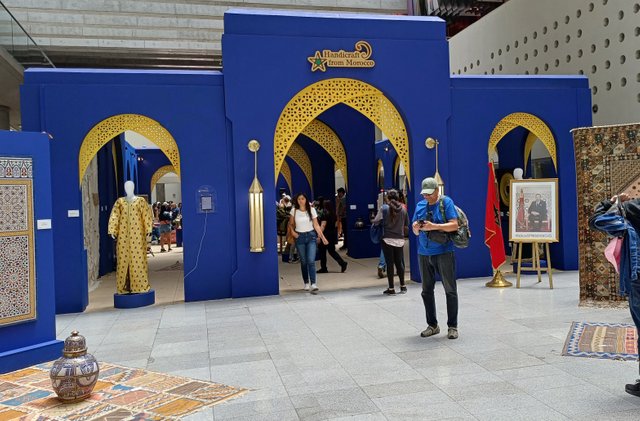
A few days ago I was lucky enough to visit an exhibition coming from Morocco that showcased very important aspects of their culture and their art and crafts.
Here I am sharing one of those wonderful crafts that I was able to observe. I hope you like it.
This artwork is inspired by zellij, but made on fabric! So, instead of tiles, it's likely embroidery or some other textile technique.
This is really cool because it shows how the iconic zellij patterns are so important in Moroccan art that they inspire artists to work with completely different materials. It's like taking the same beautiful idea and expressing it in a new way. Even though it's not made of tiles, it still has all the key elements of zellij: the intricate geometric designs, the repeating patterns, the symmetry, and the vibrant colors.
As we have already seen in previous posts, these patterns aren't just thrown together randomly. They're based on geometry, which is a branch of math that deals with shapes, lines, and angles. Moroccan craftspeople have been masters of this for centuries, using tools like compasses and rulers to create precise and complex designs.
They start with basic shapes like circles, squares, and triangles, and then they divide and combine them in clever ways to create stars, polygons, and other fascinating figures. These figures are then repeated and mirrored to create patterns that flow across the surface, often without any clear beginning or end. This creates a sense of harmony and balance, and it also reflects a cultural idea of infinity, like the patterns could just keep going on forever.
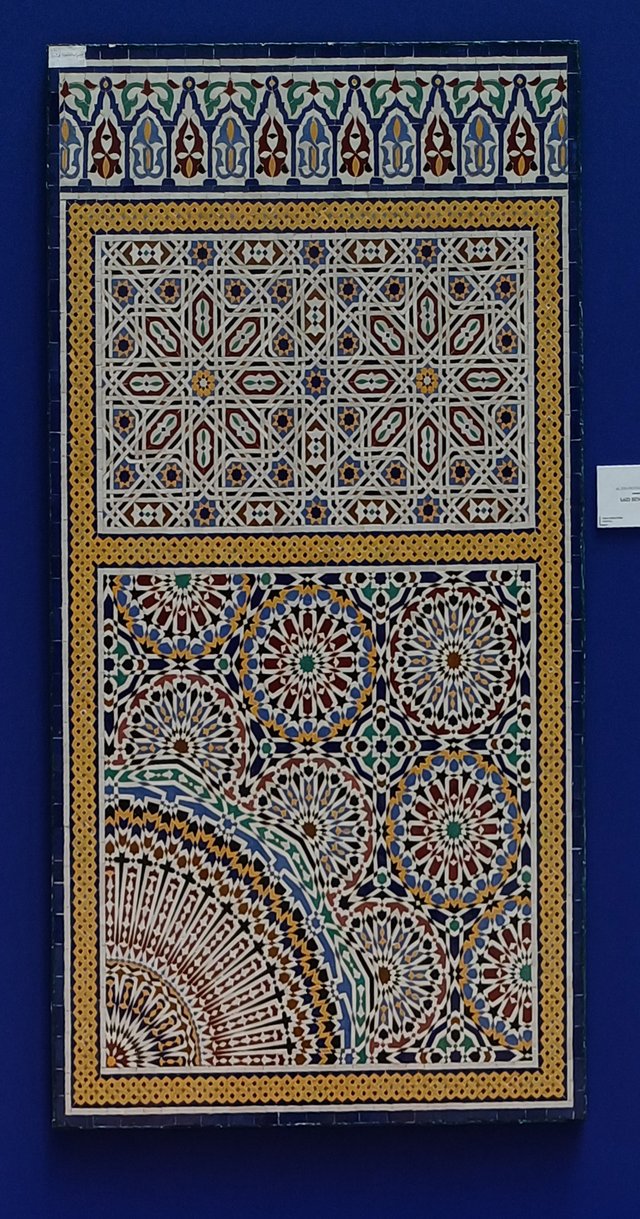
The artists have taken the basic visual language of zellij – the intricate geometric designs, the repetition of patterns, the sense of symmetry and the use of vibrant colours – and transferred it to the fabric. It is like taking a beloved melody and arranging it for a different instrument. The essence of the melody remains the same, but it takes on a new texture and character.
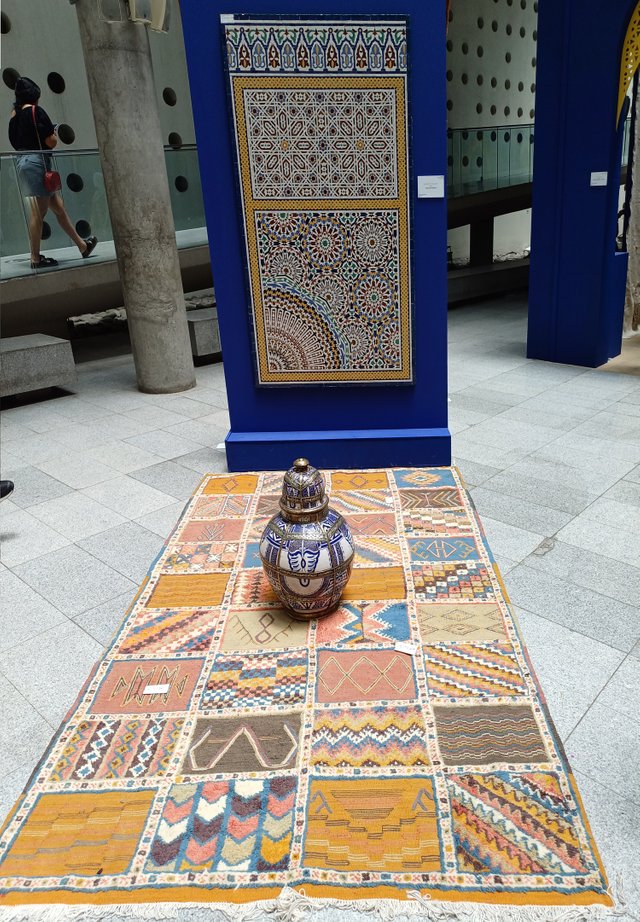
You may be wondering what zellij means.
The word "zellij" comes from the Arabic word الزليج (az-zulayj). This word can be translated to mean "small polished stone" or "little polished stone".
This name likely comes from the fact that zellij was originally inspired by earlier mosaic traditions that used small pieces of polished stone, like those found in Roman mosaics. However, instead of using stone, Moroccan artisans adapted the technique using glazed terracotta tiles, which were more readily available.
So, summarising: Zellij (also spelled zellige or zillij) is a type of mosaic tilework that is a distinctive feature of Moroccan architecture. It's made up of individually hand-chiseled pieces of glazed terracotta tiles, set into a plaster base. These pieces, which come in a variety of colours, are carefully arranged to create intricate geometric patterns.
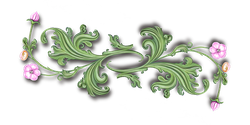
I wish you a very nice day!
Herbarium
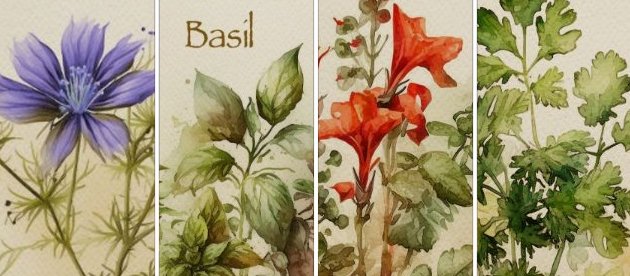
Thank you very much!!
Congratulations, your post has been upvoted by @scilwa, which is a curating account for @R2cornell's Discord Community. We can also be found on our hive community & peakd as well as on my Discord Server
Felicitaciones, su publication ha sido votado por @scilwa. También puedo ser encontrado en nuestra comunidad de colmena y Peakd así como en mi servidor de discordia
Thank you!!
You are very lucky to be able to attend this amazing exhibition, many of the material need to be viewed both first from close distance and then from distant to be able to appreciate the whole complexity of the pattern.
I wanted to use this chance and also to wish you Merry Christmas to your whole family!
Hi Stef, thank you so much for the support and your kind comment, as always! I hope you had a very good Christmas, I wish you and your family a great New Year.
Thank you very much for the support!